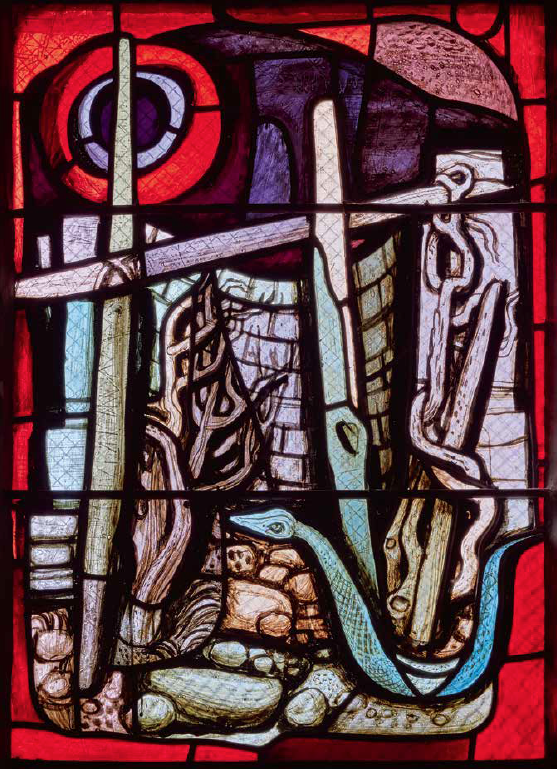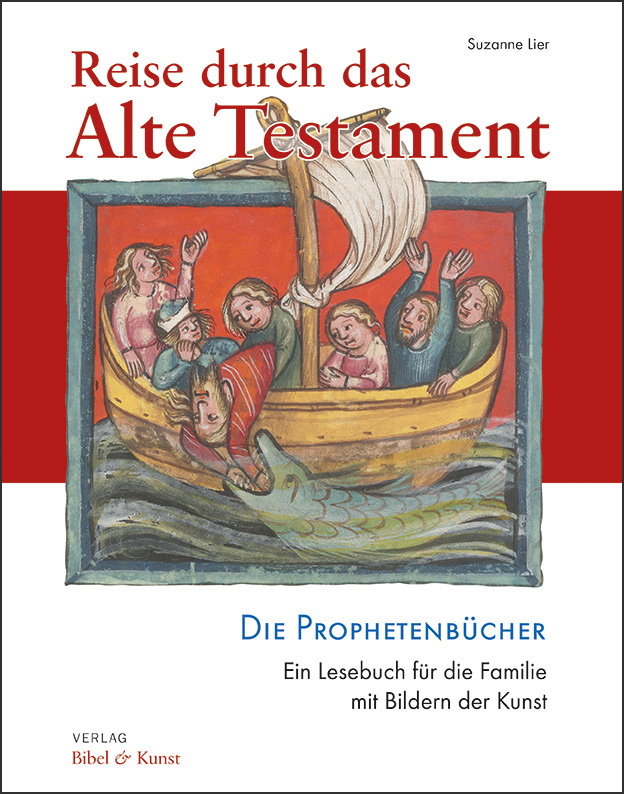September
Rotten Grapes (Isaiah 5:1-7)

For Children
What a devastation! Stones lie around disorderly, hardly a trace of the vines. When we are unjust to our fellow human beings and do not care about the poor, our society becomes such a desert.
Felix Hoffmann (1911-1975), The Unfruitful Vineyard, 1947, stained glass, Bern, Minster, south aisle, Schütz Chapel
Biblical Text
I will sing for my beloved
my love song concerning his vineyard:
My beloved had a vineyard
on a very fertile hill.
He dug it and cleared it of stones
and planted it with choice vines;
he built a watchtower in the midst of it
and hewed out a wine vat in it;
he expected it to yield grapes,
but it yielded rotten grapes.
And now, inhabitants of Jerusalem
and people of Judah,
judge between me
and my vineyard.
What more was there to do for my vineyard
that I have not done in it?
When I expected it to yield grapes,
why did it yield rotten grapes?
And now I will tell you
what I will do to my vineyard.
I will remove its hedge,
and it shall be devoured;
I will break down its wall,
and it shall be trampled down.
I will make it a wasteland;
it shall not be pruned or hoed,
and it shall be overgrown with briers and thorns;
I will also command the clouds
that they rain no rain upon it.
For the vineyard of the Lord of hosts
is the house of Israel,
and the people of Judah
are his cherished garden;
he expected justice
but saw bloodshed;
righteousness
but heard a cry!

For Adults
In its structure, the Vineyard Song is reminiscent of the story of Nathan about the poor and the rich (2 Samuel 12:1-12). At first, the interpretation of the figurative elements is not obvious in the Vineyard Song either, and only gradually do the listeners realize that they themselves are meant by the vineyard and are to be harshly accused and shaken up by YHWH, the vineyard owner. The Vineyard Song is a warning to the then and future hearers not to ignore the cry for help of the oppressed. It remains open at first where YHWH’s disappointment with his vineyard leads. Only later in the book does the theme of the Vineyard Song come up again (27:2-6) and is brought to a happy conclusion (see p. 85). – The Vineyard Song has had a great influence on Christian literature. In the New Testament, it echoes in the allegory of the true vine (John 15:1-16) and forms the basis for the parable of the wicked vinedressers (Matthew 21:33-46 et al.), but there in a highly problematic anti-Jewish extension and interpretation that „tragically contributed to the enmity of church and synagogue“ (Beuken 2003, 140).
Picture Credit
Photo: Andreas Brechbühl / Berner Münster
Text Credit
New Revised Standard Version, Updated Edition (NRSVUE) © 2021 National Council of Churches of Christ in the United States of America. Used by permission. All rights reserved worldwide.

